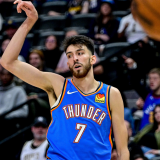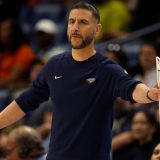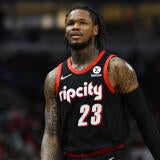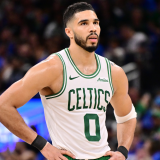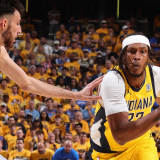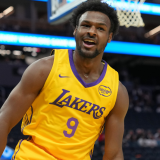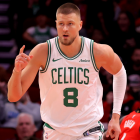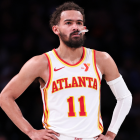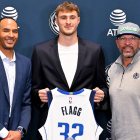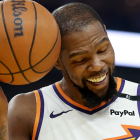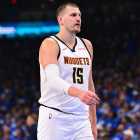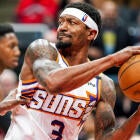Timberwolves have bigger problems against the Thunder than Shai Gilgeous-Alexander's foul-baiting
Minnesota needs a plan for Game 2 if they want a chance to even up the series
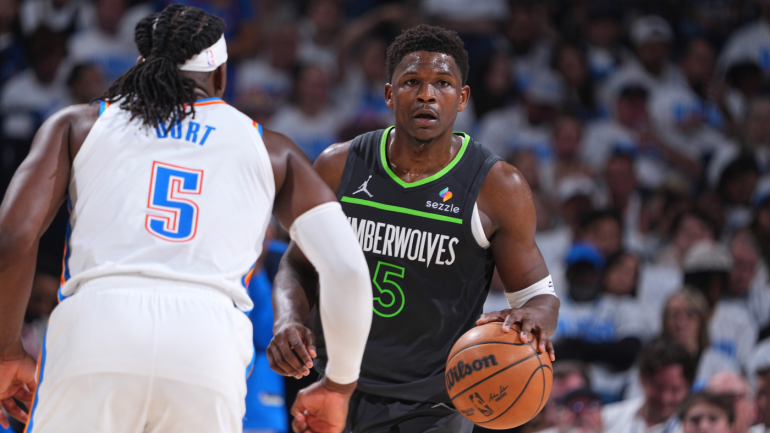
The prevailing storyline from Game 1 of the Western Conference finals has been Shai Gilgeous-Alexander's foul-baiting. Everyone on social media has taken a Zapruder film approach to breaking down every instance in which the Minnesota Timberwolves shouldn't have been called for a foul on SGA. During the game, the Timberwolves were visibly annoyed and upset at the friendly whistle the Thunder superstar was getting, something that coach Chris Finch wants his team to handle better for Game 2.
"There was a lot of frustration out there, but we talked about that before the series started," Finch said after the game. "We have to be able to kind of put that to the side [and have a] get on with the next play mentality."
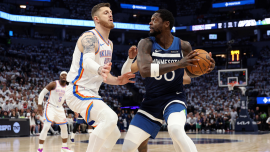
Gilgeous-Alexander had 14 free-throw attempts, the most he's had in the postseason, but his foul-baiting is really the least of Minnesota's concerns. As we get ready for Game 2 on Thursday, here are three things the Timberwolves have to do if they have want to even up this series.
1. Limiting turnovers
The Wolves had 19 turnovers in Game 1, six of which came in the first quarter. Anthony Edwards and Jaden McDaniels accounted for four of those six in the first quarter, Julius Randle had one and the other came from Donte DiVincenzo.
Credit OKC's stifling defense -- they clogged the paint, were great in help defense and were just wrecking havoc on every defensive possession -- but some of this is just taking better care of the ball. The Thunder were just swiping and poking at the ball every time down the floor, and managed to get enough contact to force a turnover.
Edwards and Randle specifically have to be better with the ball. They combined for nine on the game, and a few of them were simply a result of being too careless handling the ball, or making ill-informed passes when the defense pressured them. The Thunder were swarming Edwards and Randle every time they had the ball, sending a double team and trying to force the ball out of their hands, and that duo has to do a better job of reading what OKC is going to do and passing it to the open guy for a high-quality shot.
"I'm always gonna hold myself accountable, five turnovers is way too much," Randle said after the game. "I can't do that. We can say it's misses and makes, and it is a miss-and-make league, but regardless, we got to defend at a high level, especially on the road."
What's worse is the Thunder scored 31 points off those turnovers, so it had a massive impact on the outcome of the game. It felt like Minnesota was taken aback by the defensive intensity Oklahoma City brought, but fortunately they now know what to expect and can combat it better for Game 2.
2. Anthony Edwards must adjust to what he's being given
Edwards will always be the first to tell you that he didn't play up to his own expectations. He finished with just 13 points on a poor 5 of 13 from the field and had more turnovers than he had assists. He did tweak his ankle, which forced him to go back to the locker room, but the All-Star guard said after the game his ankle wasn't a problem for him after he returned to the game. Instead, he talked about how he needs to be more aggressive, saying, "I definitely got to shoot more, I only took 13 f---ing shots."
But it's about more than just being aggressive, and Edwards knows that. The Thunder were sending a double team practically every time he touched the ball, and any time Edwards tried to get downhill he was met with three or four OKC players waiting for him in the paint. In fact, of Edwards' 13 shots, only one came at the rim.
Every other time, the Thunder were sitting in the gaps so if Edwards did get past his defender, there were two other OKC defenders waiting for him to limit his ability in getting to the rim.
And when Edwards did create any sort of breathing room to get off good shots, he just wasn't in a rhythm enough for them to fall.
For Game 2, Edwards has already pinpointed what changes he'll need to make to try and get himself going.
"I'll probably just get off the ball a little more, play without the ball," he said. "I think that'd be the answer, because playing on the ball, they're just gonna double and sit in the gaps all day. So I gotta go watch some film and pick it apart. We'll figure it out."
We've seen Edwards be successful playing without the ball, it's just going to mean the Wolves will need more from veteran guard Mike Conley in initiating the offense. Edwards has grown that part of his game, and his improvement as a spot-up shooter has certainly helped, so we'll see if that change unlocks his game because the Thunder are making a point to take away his downhill game and force him to beat them just off jumpers.
3. Good looks, bad execution
A lot of what happened in Game 1 was because of OKC's near-perfect execution on defense. But another factor was the Timberwolves shooting the ball incredibly poorly. Of the 51 attempts they took from 3-point range, 30 of them were wide open without a defender within six feet of the shooter. Of those 30, Minnesota made eight of them. That's certainly not going to win you many games.
This doesn't fall on any one person; no one could buy a bucket for the Wolves. Randle was the only one who had any sort of rhythm from beyond the arc, going 5 of 6 from deep, but all those makes came in the first half, during which he had 20 points. Randle didn't even take a 3-pointer in the second half. Naz Reid, Nickeil Alexander-Walker and DiVincenzo, guys who the Wolves depend on hitting 3s, went a combined 5 for 28, and Reid didn't connect on a single one of his attempts.
"They got great looks, just couldn't make them," Edwards said. "A lot of them went in and out, and that's gonna help us. That's gonna help me and [Julius Randle], because they usually make those shots, so we're not really worried about them making shots."
You hope that this was an anomaly, and Edwards said after the game it was "good to get it out our system in Game 1," in regards to the general performance by the team. That has to be the case, because Minnesota can't afford another game where Rudy Gobert has just three rebounds, Edwards struggles to dissect OKC's defense and the role players go ice cold. It may have only been one game, but OKC's dominant performance felt like a precursor for how quickly this series could end if Minnesota doesn't figure some things out.
![[object Object] Logo](https://sportshub.cbsistatic.com/i/2020/04/22/e9ceb731-8b3f-4c60-98fe-090ab66a2997/screen-shot-2020-04-22-at-11-04-56-am.png)


